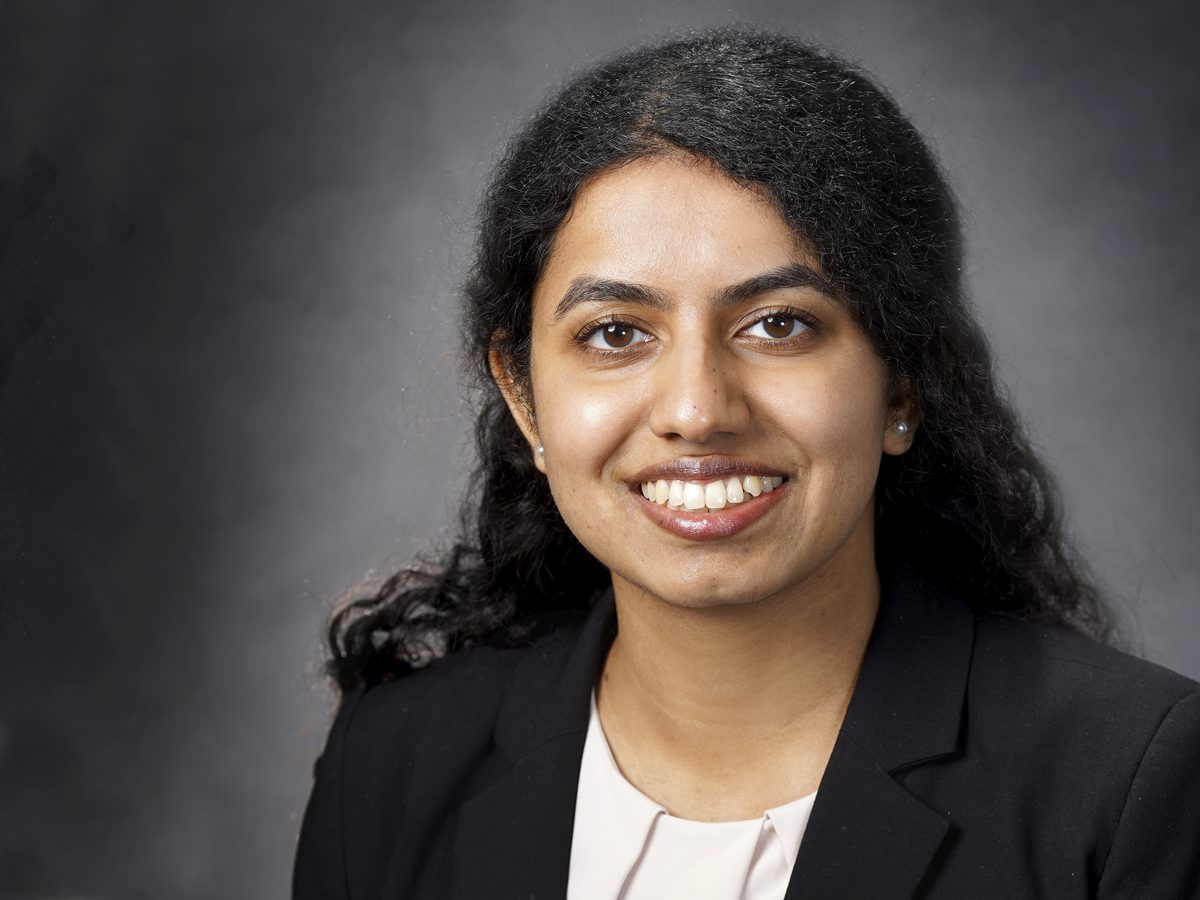Loheetha Ragupathi, MD, FAC
On the Forefront of Cardiac Care
If you think about it, engineering and medicine go hand-in-hand. They both use logic, data, research, math, science and creativity to solve the problem at hand. It’s no wonder then that Loheetha Ragupathi, MD, FACC, associate director of Cooper University Health Care’s Structural Heart Program and a member of Cardiac Partners at Cooper and Inspira, went to school for engineering and came out a cardiologist.

Loheetha Ragupathi, MD, FACC
Associate Director, Structural Heart Program
Cooper University Health Care
“Medicine became a way for me to see the aspects of engineering applied more directly and on a much more personal level,” says Ragupathi. “In medicine, there’s new technology being developed every day, particularly for the treatment of cardiovascular disease. That rate of advancement is exciting because there are always new, innovative ways to help patients.”
It’s complicated, she says, and that’s half the fun.
“Cardiovascular imaging involves a detailed understanding of both technology and cardiovascular systems, so you take those skill sets and use problem-solving and critical thinking to come up with a new way to help patients,” she says. “Intellectually, it’s a challenge, and I really enjoy that.”
And whatever decisions she makes, she knows she can back them up.
“We have a lot of data about cardiac treatments, so I can always support my decisions with clear data and clinical trial information,” adds Ragupathi.
Her interest in emerging technologies goes beyond using the most state-of-the-art research and methods – she wants to be part of developing them. At Cooper’s Structural Heart Program, that’s exactly what she gets to do.
“Being able to treat someone who is critically ill and see them years afterward as stable, healthy patients is really rewarding.”
“Structural heart disease” is an umbrella term, she says. It’s anything that affects the structure of the heart – the valves, chambers, walls, pockets, etc. Any abnormality in those areas weakens the organ, leaving patients vulnerable to significant health risks like stroke, heart failure or sudden cardiac arrest, and potentially damaging the other vital organs that the heart pumps blood to, like the lungs.
“These are diseases that can you can be born with or they can develop later in life,” says Ragupathi. “Some of these issues, particularly heart valve disease, tend to get worse over time, so it’s vital that we are closely monitoring these patients and offering them the latest therapies for their condition.”
As associate director of Cooper’s Structural Heart program, Ragupathi is part of groundbreaking clinical trials and medical advances that allow doctors to treat cardiac patients through nonsurgical, minimally-invasive and catheter-based procedures.
As medicine becomes more intricate, being a part of a team to approach patients with complex heart conditions is very important, she says.
“Sometimes, there is a misconception that cardiologists and cardiac surgeons are one in the same,” says Ragupathi. “As a cardiologist, we don’t do open-heart surgery. Instead, we’re involved in diagnosis, prescribing the medications to manage disease and performing minimally-invasive procedures. We work closely with our cardiac surgeon colleagues to identify those patients who need heart surgery, and continue to treat them after their surgery. At Cooper, we work as a multidisciplinary team to take care of our cardiac patients, including cardiologists, cardiac surgeons, electrophysiologists, interventional cardiologists, physician assistants, and nurse practitioners, among others”
These procedures are making a significant impact on cardiac patients, she says, particularly in the past year.
“We had a long period of time during the pandemic when we had patients come in for a procedure or receive care in the hospital for a significant amount of time, and they weren’t allowed to have anyone there to support them,” she says. “Any procedure is difficult and scary, and it’s particularly hard to have to go through it alone. We’ve come a long way since those restrictions thankfully, but it was challenging.”
Minimally-invasive procedures like those being developed at Cooper’s Structural Heart Program often lead to shorter hospital stays and quicker recoveries, which means patients get to go home to their support system quickly. Even without visitor restrictions in place, they’d still rather be at home than in a hospital bed, says Ragupathi.
“Being able to provide that type of care really motivates me,” she says. “What interested me in cardiology was the ability to use a number of treatment options to have a positive impact on peoples’ lives when they’re in critical condition. Being able to treat someone who is critically ill and see them years afterward as stable, healthy patients is really rewarding.”
That’s why she entered medicine in the first place, she says. Ragupathi earned her medical degree at Mount Sinai in New York before moving to Philadelphia for her internships and residency in internal medicine, followed by a fellowship in cardiology. She joined Cooper in 2019 and has been making her mark there ever since.
“It’s amazing to be a part of developing new, novel techniques that we can offer to our patients,” says Ragupathi. “I really do feel like we’re making a difference through this work and through these procedures. That’s a very rewarding thing.”

833.SJHEART (833-784-3278)

